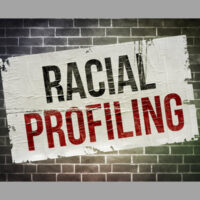Different Types Of Selective Enforcement

It is concerning behavior when law enforcement officials apply laws in a biased or discriminatory manner. Commonly referred to as selective enforcement, the practice is when laws are not enforcing laws uniformly. Instead, officers choose to target certain individuals or groups based on individual characteristics. This unequal application of the law undermines justice, erodes public trust, and can have serious legal consequences.
If you or someone you know has been targeted unfairly by law enforcement, don’t hesitate to seek legal help. An experienced Baltimore police misconduct lawyer can provide the guidance and support you need to protect your rights and pursue the justice you deserve.
Race, Gender, Location, and More
Selective enforcement occurs when law enforcement officials choose to enforce laws against specific individuals or groups while ignoring similar offenses committed by others. This practice can manifest in several ways.
- Racial profiling. Perhaps the most well-known form of selective enforcement, racial profiling involves targeting individuals for stops, searches, or arrests based solely on their race or ethnicity. For example, if police disproportionately stop and frisk young Black men in a neighborhood while overlooking similar behavior by white individuals, this is a clear case of racial profiling.
- Gender-based discrimination. Selective enforcement can also occur based on gender. This is the case when law enforcement officers are more likely to arrest or charge men for domestic violence while giving women a pass for similar behavior.
- Neighborhood discrimination. In some situations, law enforcement may focus their efforts on certain neighborhoods, often those with higher minority populations or lower socioeconomic status, while neglecting to enforce laws in wealthier, predominantly white areas. This can lead to a cycle of over-policing in marginalized communities, resulting in higher arrest rates and a greater likelihood of encountering the criminal justice system for residents of these areas.
- Bias against certain groups. Beyond race, gender, and neighborhood, selective enforcement can also target other specific groups, such as the LGBTQ+ community, homeless individuals, or immigrants.
Another example of an unfair practice is the broken windows policing strategy, where minor infractions are strictly enforced in certain neighborhoods to prevent more serious crimes. While this approach may be well-intentioned, it often results in selective enforcement against residents of low-income, minority communities, leading to disproportionate arrests and criminal records for minor offenses.
Skilled Attorneys as Advocates
When you connect with a Baltimore police misconduct lawyer, they can help you gather evidence to support your claim, such as statistical data showing disparities in law enforcement practices. They can also help you file a complaint with the appropriate oversight agencies, or pursue legal action if necessary, to hold law enforcement accountable for discriminatory practices.
What questions do you have about unjust police practices? In addition to seeking justice for individuals affected by selective enforcement, legal action can also lead to broader reforms within police departments, helping to prevent future instances of discrimination and ensuring that laws are applied fairly and equitably to all citizens. Have a conversation with the legal team at Iamele & Iamele, LLP to learn more. Contact us to book a confidential consultation.

